North Korean National Anthem: English Translation, Original Lyrics And History
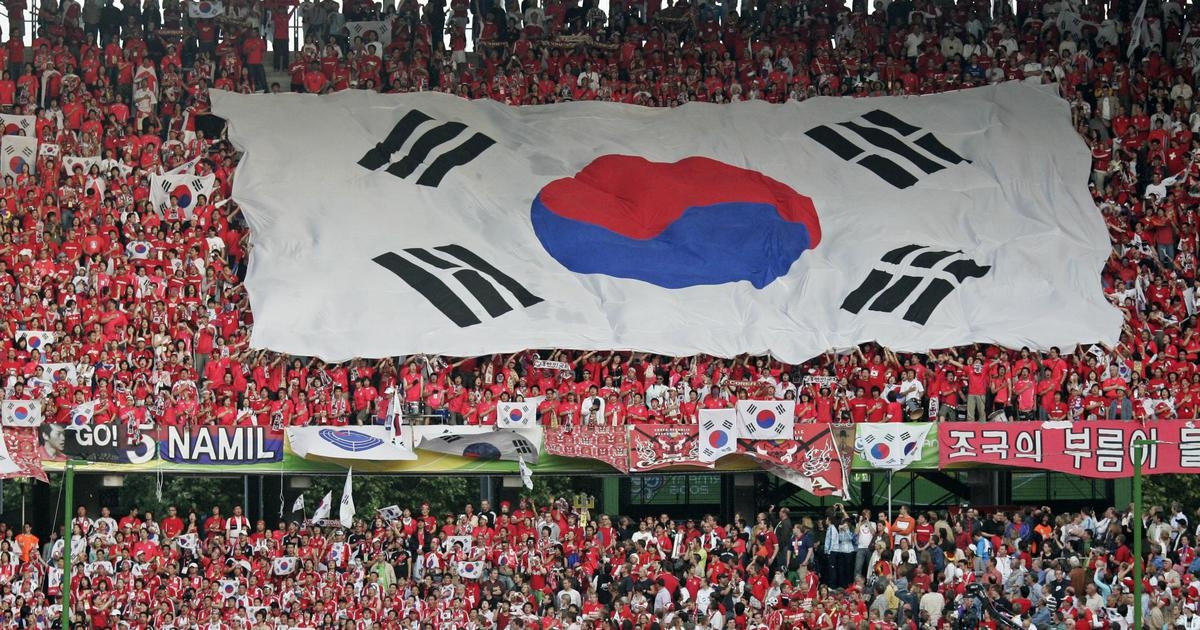 |
| What Is The North Korean National Anthem: English Translation, Original Lyrics And History. Photo: Scroll |
"Aegukka" (Chosŏn'gŭl: 애국가; lit. 'Patriotism Song'), officially translated as the "Patriotic Song", is the national anthem of the Democratic People's Republic of Korea, more commonly known as North Korea. It was composed in 1945 as a patriotic song celebrating independence from Japanese occupation and was adopted as the state anthem in 1947.
The South Korean government, whose anthem had previously used the Scottish music "Auld Lang Syne," chose a new anthem in 1947, a year before the creation of North Korea in 1948. The anthem makes no reference to the North Korean government or its founder, which is unusual for a North Korean patriotic song. The song shares the same name as South Korea's (and the anthem of the Koreas' ancestor, the Korean Empire), and its tune is similar to that of the South Korean anthem. Some advocates for Korean reunification have even utilized a "unified Korean hymn" composed by harmoniously mixing the tunes of the anthems of North and South Korea.
Here are the anthem’s history, original lyrics and English translation.
History of North Korean national anthem
The Korean government in exile (1919-1945) in Shanghai, China, adopted "Aegukga" (same name, different Romanization) as their national song. Following WWII, South Korea preserved the lyrics but set them to a new tune (different from "Auld Lang Syne"), whereas North Korea adopted this newly created composition in 1947. Pak Se-yong penned the lyrics, and Kim Won-gyun provided the tune.
Kim Jong-il attempted to downplay the song's significance in the 1980s so that "Song of General Kim Il-sung" might receive more attention.
There are two verses to "Aegukka" in their entirety. When only the first verse is to be sung at an official event, the final four bars are traditionally repeated. However, the final four bars of the second verse are repeated if both are played.
De facto national anthems "Song of General Kim Il-sung" and "Song of General Kim Jong-il" have since replaced "Aegukka"; "Aegukka" is now reserved for international occasions, such as the hosting of foreign dignitaries or the participation of North Korean athletes in international sporting competitions. Many North Koreans do not know the words of the national anthem because it is not frequently played in the country (save as a radio or television sign-off).
The North Korean patriotic song "Aegukka" is unusual compared to others of its like because it does not sing the glories of the Workers' Party of Korea or the Kim dynasty, but of Korea as a whole.
At the opening of each day of broadcasting on Korean Central Television, the song "Aegukka" is played.
Lyrics of North Korean national anthem
"Aegukka" is a Romanized transliteration of "The Patriotic Song"; the song is also known by its incipit Ach'imŭn pinnara or "Let Morning Shine" or in its Korean name 아침빛나라 or alternatively as the "Song of a Devotion to a Country".
The Encyclopedia of Korean Culture defines "Aegukka" as "the song to wake up the mind to love the country". "Aegukka" in itself is differentiated from a national anthem. While a national anthem or gukka (lit. 'country song') is an official symbol of the state, aegukka refers to any song, official or unofficial, that contains patriotic fervor towards its country, such as Hungary's "Szózat" or the U.S. "The Stars and Stripes Forever". However, the nationally designated "Aegukka" plays the role of symbolizing the country. In general shorthand, the term aegukka refers to the national anthem of North Korea.
Korean lyrics (Chosŏn'gŭl (Han-geul) script)
1. 아침은 빛나라 이 강산
은금의 자원도 가득한
삼천리 아름다운 내 조국
반만년 오랜 력사에
찬란한 문화로 자라난
슬기론 인민의 이 영광
몸과 맘 다바쳐 이 조선
길이 받드세
2. 백두산 기상을 다 안고
근로의 정신은 깃들어
진리로 뭉쳐진 억센 뜻
온 세계 앞서 나가라
솟는 힘 노도도 내밀어
인민의 뜻으로 선 나라
한없이 부강하는
이 조선 길이 빛내세
Korean lyrics (McCune-Reischauer Romanization)
1. Achimŭn pinnara i kangsan
Ŭnkume, cawŏnto katŭk han
Samchŏlli, arŭmtaun nae cokuk,
Panmannyŏn oraen ryŏksa e.
Chanranhan munhwaro caranan
Sŭlkiron inmin yi i yŏngkwang:
Momkwa mam tapachyŏ, i, cosŏn
Kili pattŭse.
2. Paektusan Kisangŭl ta anko.
Kŭlloyi cŏngsinŭn kittŭlŏ.
Chilriro mungchyŏcin ŏksen ttŭs
On sekye aphsŏ nakara.
Sonnŭn him nototo naemilŏ,
Inminyi ttŭsŭro sŏn nara.
Han ŏpsi pukanghanŭn
I cosŏn kili pinnaese.
The North Korean National Anthem in English translation
1. Let morning shine on the silver and gold of this land,
Three thousand leagues packed with natural wealth.
My beautiful fatherland.
The glory of a wise people
Brought up in a culture brilliant
With a history five millennia long.
Let us devote our bodies and minds
To supporting this Korea for ever.
2. The firm will, bonded with truth,
Nest for the spirit of labour,
Embracing the atmosphere of Mount Paektu,
Will go forth to all the world.
The country established by the will of the people,
Breasting the raging waves with soaring strength.
Let us glorify for ever this Korea,
Limitlessly rich and strong.
Lyrics video of North Korean national anthem
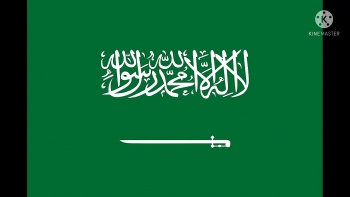 What Is The Saudi Arabia National Anthem: English Translation, Original Lyrics And History What Is The Saudi Arabia National Anthem: English Translation, Original Lyrics And History The "National Anthem of the Kingdom of Saudi Arabia" ("Chant of the Saudi Nation") was first officially adopted in 1950 without lyrics. Take a look ... |
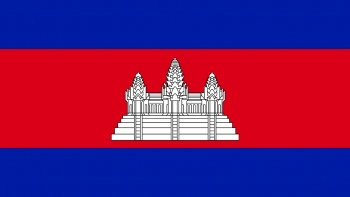 What Is The Cambodian National Anthem: English Translation, Original Lyrics And History What Is The Cambodian National Anthem: English Translation, Original Lyrics And History "Nokor Reach" ("Majestic Kingdom Song") is the national anthem of Cambodia. In the article below, we will provide you the information about its history, original ... |
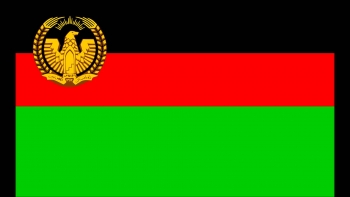 What Is The Afghansitan National Anthem: English Translation, Original Lyrics And History What Is The Afghansitan National Anthem: English Translation, Original Lyrics And History Afghanistan has had a number of different national anthems throughout its history. Keep scrolling down and reading about the country's history, original lyrics, and English ... |
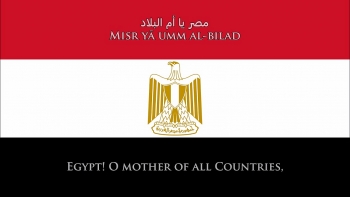 What Is The Egypt National Anthem: English Translation, Original Lyrics And History What Is The Egypt National Anthem: English Translation, Original Lyrics And History "Bilādī, laki ḥubbī wa fuʾādī", also known by its incipit as "Bilady, Bilady, Bilady", is the national anthem of Egypt. If you want to learn ... |


























